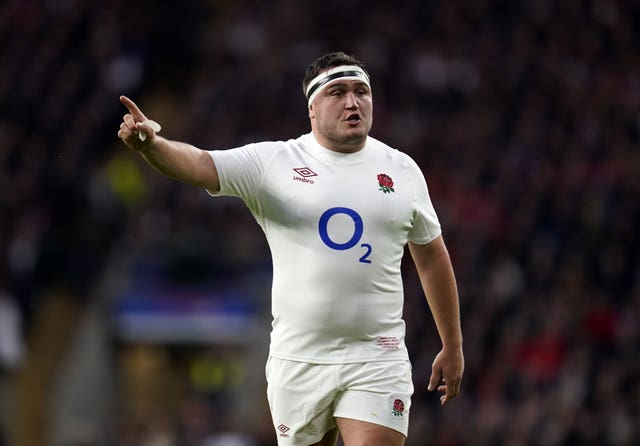“White orcs on steroids” was the brutish description of England’s pack following their act of defiance against New Zealand in 2003 and World Cup winner Neil Back looks back on those famous words with approval.
England face the All Blacks in Dunedin on Saturday with the aim of becoming the nation’s first side to win on Kiwi soil since Martin Johnson’s world champions-in-waiting prevailed 15-13 in Wellington 21 years ago.
That rain-swept night entered English rugby folklore after a succession of scrums close to their try-line were repelled even though Back and Lawrence Dallaglio were in the sin-bin.
Jonny Wilkinson may have kicked all the points but it was the forwards who left a lasting impression, inspiring the comparison with the monstrous creatures from ‘Lord of the Rings’ that was published in an Auckland newspaper.
“Small children who stayed up late to watch this Test will be wetting their beds for weeks,” concluded the piece. “But, boy, I’d love to have them playing for us.”
Being likened to orcs was eerily timed for some of the squad after flanker Richard Hill used a family connection to gain access to the set for filming of the final instalment of JRR Tolkien’s trilogy.
“Hilly’s cousin is the film director Peter Jackson. We were out there and Hilly said ‘my cousin’s directing that film, shall we see if we can make a visit?’ He called him and a number of us went along. It was a good day,” Back told the PA news agency.
“I think ‘white orcs on steroids’ was a really accurate description of our pack at the time! We put our heads where the ball was and because of that we got kicked a lot. But we weren’t bothered about looks, we were bothered about winning.”
What became a treasured moment in Back’s 66-cap career – he won a further five for the Lions – appeared destined for a gloomier outcome when he was sent to the sin-bin for killing the ball early in the second-half.
“On 46 minutes I got yellow carded and thought that not only have I let myself down, but also my team-mates, the squad and England,” Back said.
“But about 90 seconds later I was joined by Lawrence Dallaglio so that made me feel a bit happier! It meant there was someone who was feeling as bad as me…
“I remember looking deep into his eyes and we both knew all we could do was will the players on from the sideline.
“We’d beaten New Zealand the previous autumn and not many teams beat them back to back. Ahead of the World Cup, we saw it as crucial to continue that winning run and so that we were ranked number one going into the tournament.
“Because of that the 10 minutes I was off the pitch were probably the worse moments of my rugby life. All you want to do is get back on to the pitch and help the guys out.
“When we got back on the field there was a shared feeling it was within our hands to keep them out and that’s what we did.
“New Zealand are smart most of the time but they weren’t smart that day. They tactically tried to take us on up front, which was one of our strengths, and we just battered back
“The conditions were terrible and we rattled them. We found a way to win. It wasn’t pretty but like England’s win against Slovakia in the Euros – who cares!
“Going to New Zealand and beating them in their own back yard is the ultimate.”

One of England’s finest moments was celebrated modestly in anticipation of the clash with Australia in Melbourne the following Saturday, which was claimed 25-14. They went on to win the World Cup that autumn, but that tour saw Johnson’s side operating at the peak of their powers.
Five Tests have been played in New Zealand since, each of them ending in defeat, and if England prevail at Forsyth Barr Stadium on Saturday they will join the 1973 and 2003 vintages in becoming the only teams to accomplish arguably rugby’s greatest challenge.
“We didn’t celebrate that much. We had a sharp half after, but Jason Leonard probably had a few more,” said Back, who after a spell in coaching now works as a business consultant and motivational and hospitality speaker.
“It was great to beat New Zealand back to back and be the first England team to win there for 30 years, but it was always about the end game which was winning the World Cup.”

